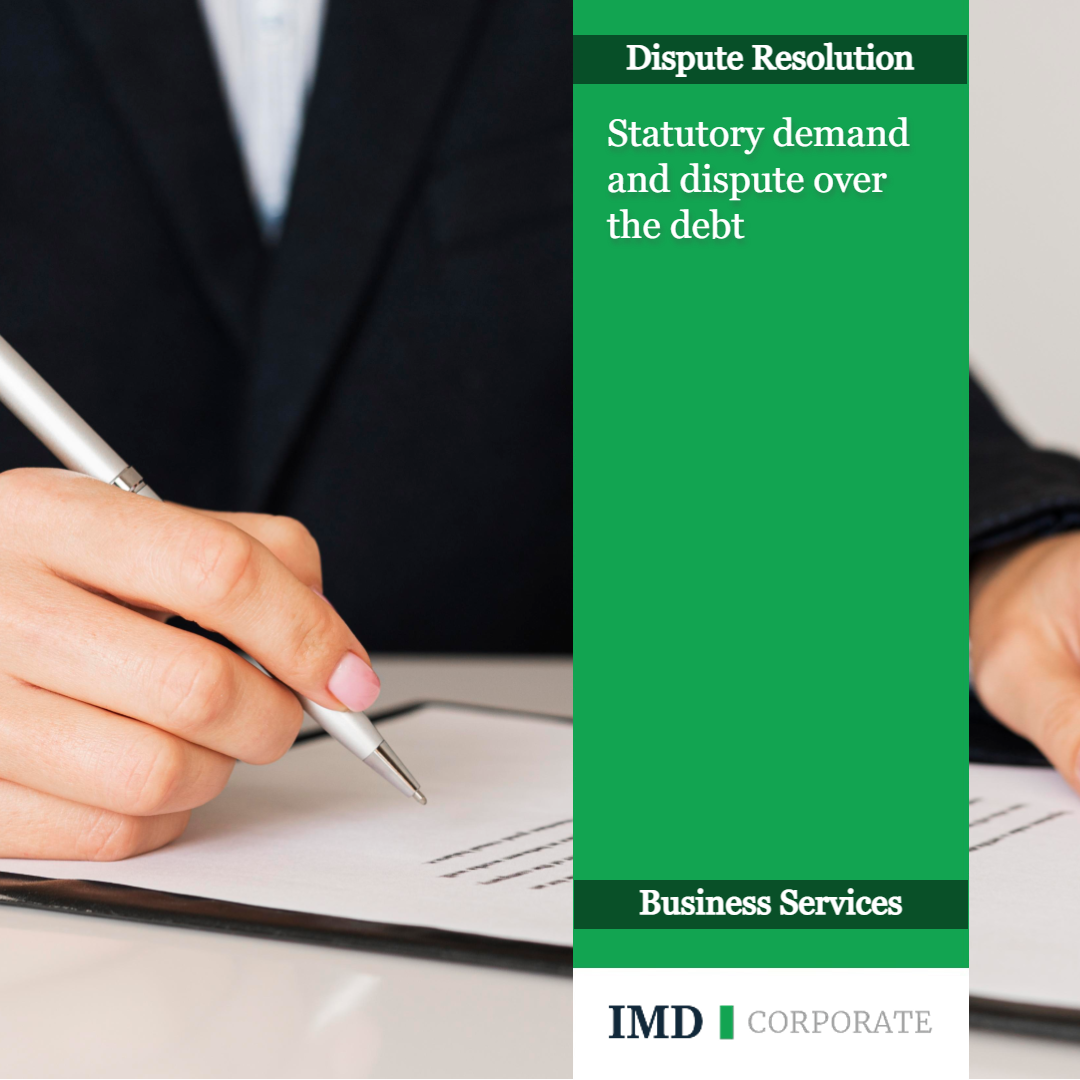
A statutory demand can be useful tool for a creditor (a person to whom the debt is owed) to ask for payment of a debt from individual or company. Being a written notice, a statutory demand must be prepared in accordance with special provisions of The Insolvency Rules 2016, or The Insolvency Act 1986 (for individuals) and served in a prescribed way.
It is not always possible to make a statutory demand, for example, a creditor of a company usually will not be entitled to serve a statutory demand if the debt is older than 6 years, and the debt owing by the company is less than £750.
If a valid statutory demand is served on a company, and debt remains unpaid for 21 days, a creditor will be entitled to make a winding-up petition against the debtor-company. However, that is not always a case.
A rule is that a company disputing a debt on substantial grounds is not required to comply with the demand. If a genuine dispute over the debt is established, the statutory demand can be set aside (cancelled) by court, and costs awarded against the creditor who sought to recover the amount from the debtor-company in the first place.
“Substantial” dispute should be “real as opposed to frivolous” (Commissioners of Customs & Excise v The Arena Corporation Ltd [2004] EWCA Civ 371), and “genuine” means that it must be real and a “mere honest belief that payment is not due” will not suffice (Re a Company (No 010656 of 1990) [1991] BCLC 464). The court will determine on each occasion as to whether the dispute between the parties is “genuine” and “on substantial grounds”.
If you are served a statutory demand, and you dispute the debt to which it relates to, the above-mentioned rule may give you a chance to effectively challenge the demand and seek costs against the creditor. If you are a creditor, you should consider first whether there is a genuine dispute over the debt, or whether the debtor admitted it owes you money. All in all, if the case goes to court, you should be prepared to present evidence to support your statement to either claim or defend your position.
At IMD Corporate, we assist both creditors and debtors, and are ready to advise you and assist if you have been served or wish to serve a statutory demand.
This article is for general information only and does not constitute legal or professional advice. Please note that the law may have changed since this article was published.
Call us now to discuss your case 0330 107 0106 or email us at business@imd.co.uk.